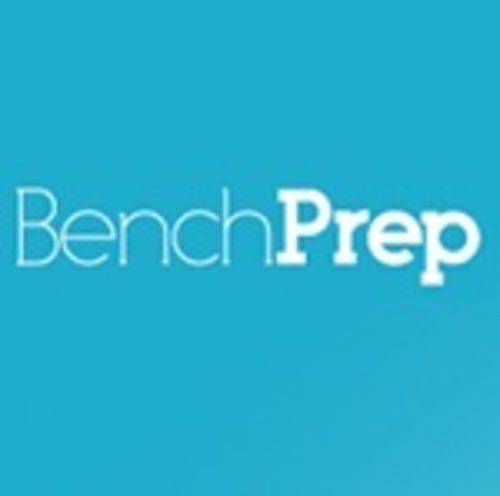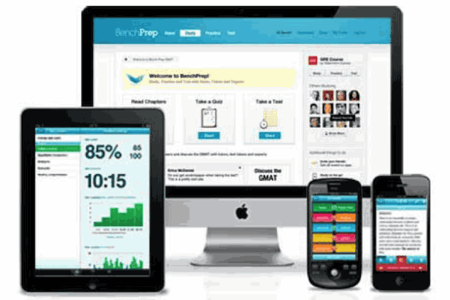BenchPrep has just released an update to the iOS version of its social learning app to enable seamless syncing across devices. BenchPrep, formerly known as Watermelon Express, sells prep courses from educational publishers for undergraduate, graduate and professional-level standardized tests like the LSAT, GMAT, GRE, MCAT, Bar Exam and more.

The app is also available on Android and the Web, but the previous iOS version required students to work on the device for which a course was purchased. Today’s update will sync work across all devices, including test answers and performance as well as notes and other student-created content. Work done offline will sync as soon as the device is connected again.
BenchPrep partners with big educational publishers, licenses their content and enhances it with the interactive and social functions of the app. Most of the courses sell for $99.99.

BenchPress CEO Ashish Rangnekar says social features are part of the company’s educational philosophy. “Social learning,” as Rangenkar frames it, means using data from student activity to form online study groups, matching students based on their work styles and enabling students to share notes, flash cards or other prep materials. Printed materials and conventional e-books, he says, are “very static. There is no interaction. There is no feedback, there is no analytics, and these things are all part of what we believe learning should be.”
Rangnekar says this philosophy comes out of the team’s many years as students, rather than a background as educators, but that leads to an app developed with the interests of students at heart.

Test Prep is BenchPrep’s Specialty
Currently, the course offerings are mostly for higher education, but Rangnekar says that the app is beginning to reach the high school market as well. “We want students to graduate within the platform,” Rangnekar says. Because BenchPrep can offer prep courses across all levels of education, with performance analytics that students can bring with them, Rangnekar envisions a use case for BenchPress that follows a student “throughout the educational life cycle.” Subject tests for graduate school usually require students to reach back to high school- or college-level math. Having that old test material, as well as detailed performance analytics, readily available on the same platform would be a great help to students.
The analytics also provide value for the publishers, who can get more meaningful feedback from interactive educational materials than simple print sales figures could provide.
BenchPrep is positioned mostly as a self-prep tool; it doesn’t yet offer textbooks or help teachers create curricula, but Rangnekar says BenchPrep is “in the process of building analytics tools for [educators]” to help them monitor their students’ test preparation. As a platform, BenchPrep would already be able to deliver textbooks or other in-class material, it just hasn’t broken into that kind of content yet.
We offered a round-up of Web-powered test prep services in the past, and Watermelon Express, BenchPrep’s predecessor, was first on the list. Other services, such as Grockit, also emphasize social learning, but BenchPrep’s integration across platforms and devices stands out.
Toward the Future of Educational Content
BenchPrep’s platform seems scalable, and it could conceivably expand beyond the test prep space and have an impact inside the classroom. Chegg and Amazon’s Kindle Textbook Rental are well-established in the digital textbook market, but BenchPrep’s model could offer textbook publishers a different kind of business for a different kind of content. With its interactive capabilities, and especially with its offline access, BenchPrep could deliver educators and students a new kind of course material, rather than renting static content based on the model of the physical textbook.
How do you think social Web technologies in education can supplement face-to-face learning?

















